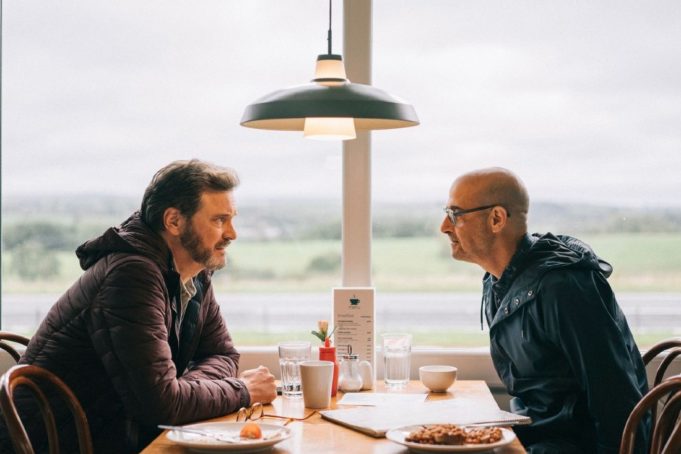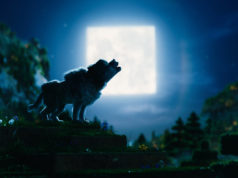In my travels, I’ve come across numerous movies that were dull, bad, or ordinary yet had a single moment or scene that achieved greatness. When this happens, it’s frustrating — why couldn’t the filmmakers have brought that same level of thought or inspiration to the rest of the film? On the other hand, I’ve always treasured these scenes, because these moments of wonder are even more wondrous in the context of mediocrity. Whether it’s a marvelous action set piece, a genuinely funny bit, a great piece of acting by some supporting player, or just something that grabs hold of me for reasons I can’t immediately put my finger on, these things sustain a film critic through the dark times.
Supernova is one such case, as this British drama about a gay couple spends too much of its 94-minute running time being frightfully boring until it suddenly explodes into life. I can’t explain how it does that without giving away the plot, so consider this your spoiler alert: Do not read the last two paragraphs of this review if you wish to be surprised.
The story takes place on a road trip through England’s Lake District taken by Sam (Colin Firth) and Tusker (Stanley Tucci), his American partner of more than 20 years. Sam is a classical pianist who has not performed publicly in some time, and the ostensible goal of the journey is for him to play a recital in an out-of-the-way concert hall. However, the real urgency behind the trip comes from Tusker’s diagnosis of early-onset dementia. When we first see them, Tusker lucidly discusses Sam restarting his career and whether to turn on the GPS in the RV that Sam’s driving. Then Sam stops in to buy some groceries and comes back to find that Tusker has taken their dog and wandered off, and he has to drive some way down the road before locating them.
This seems to be the season for films about dementia — Florian Zeller’s The Father also comes our way later. Writer-director Harry MacQueen gives us some beautiful shots of the Lake District in the fall, but too much of Sam and Tusker’s banter is the banal talk of a couple who have been together for a long time. The film lacks the pitiless observational eye of Michael Haneke’s Amour, and Tusker’s amateur interest in astronomy proves to be a weak theme in the script even as it gives the movie its title. Last summer’s Relic gave us a powerful metaphor for mental decline, one that this film could sorely use.
The story doesn’t kick into gear until an hour in, when Sam discovers evidence in the RV that Tusker is planning to end his own life in the next few days, before the couple returns to their home in London. This gives way to a confrontation over a dinner table, and the fireworks are everything you would hope for from two actors of this pedigree. Their performances prior to this are marked by the easy facility of a couple grown long familiar with each other’s quiddities, but it’s only when Firth’s outrage and grief run up against Tucci’s calm resolve that the pairing becomes compelling. The raw honesty here comes too late to make Supernova into a good movie, yet it does provide a reason to see the film.
I am a classical pianist who always keeps track of when actors play the piano in movies, so I note that Colin Firth is actually playing when you see him play. The final scene is of Sam on the concert stage giving a lovely rendition of Elgar’s Salut d’amour. If there’s a more apt and more beautiful way to end Supernova, I can’t think of it.
Supernova
Starring Colin Firth and Stanley Tucci. Written and directed by Harry MacQueen. Rated R.












